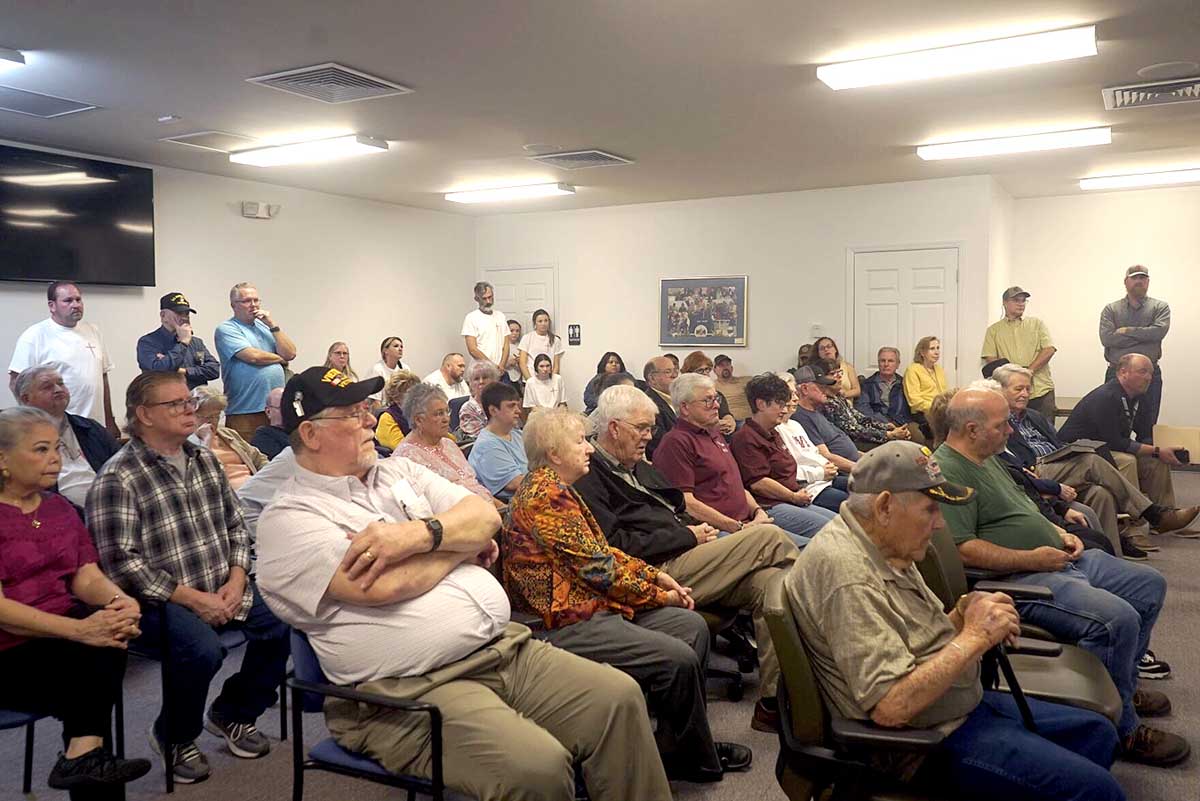There’s a new suit to stand alongside the old.
Published 10:56 pm Wednesday, July 30, 2014
There’s a new suit to stand alongside the old.
The old one is embattled; tied up across court jurisdictions; operating on a fractured timeline; multifaceted.
The new one is, well, new. It makes a pair of allegations not set forth in the original lawsuit or a subsequent amendment to plaintiffs’ claims in that case.
In circuit court Tuesday, Trimble-area farmer Billy Meeks, a vocal opponent of the Cullman County Commission’s creation of a controversial water utility cooperative and its oversight board—both of which already lie at the heart of ongoing litigation seeking to have the two entities dissolved—filed a lawsuit alleging that four property deeds held by the South Cumberland Cooperative District (SCCD) are invalid; that the cooperative itself was created in violation of the state statute outlining how such bodies may come to exist.
The original lawsuit, filed May 7, seeks the dissolution of the SCCD and its oversight board, the Governmental Utility Services Corporation of Cullman County (GUSC).
That suit is currently on hold, while both sides await a Supreme Court ruling on the defendants’ appeal of an injunction issued against them earlier this year in circuit court.
Plaintiffs in the original five-count suit include six area farmers who, along with county commission chairman James Graves, brought a series of allegations against associate county commissioners Doug Williams and Wayne Willingham, along with the SCCD and the GUSC, shortly after the associate commissioners passed the two bodies into existence at a controversial county commission meeting in late April. The timeline for that suit has been slowed to a crawl ever since the defendants appealed to the Supreme Court to halt a preliminary injunction that forbade the SCCD and GUSC from taking deliberative action and ordered the SCCD return the county water department to commission oversight until the lawsuit has been resolved.
The Meeks suit, filed Wednesday, names all of the defendants listed in the original suit, but also names the four remaining members of the five-member GUSC board—Dennis Haynes, Wiley Kitchens, Ron Stone and Stan Wood—individually. The fifth GUSC member, Don Wilbanks, resigned from the new board three weeks after it was created. He is not listed among the defendants served in the Meeks suit.
The new suit
There are two counts alleged against defendants in the Meeks case.
The first count asserts that a series of four deeds made out to the SCCD on April 27—the same day the SCCD was created—are invalid because they were never signed by commission chairman Graves as state law requires. Instead, they were executed by associate commissioner Willingham and recorded in the probate offices in the four counties—Cullman, Morgan, Winston and Walker—in which the deeded property lies. In all four cases, the property itself consists generally of water line infrastructure that traverses county lines to serve water customers in—and at the periphery of—Cullman County.
“The Plaintiff contends that these deeds are invalid and failed to vest the SCCD with the title to the real property described therein,” count one alleges, “because…they were not executed by the chairman of the Commission as required by [Section] 11-14-2 [of the Code of Alabama].”
That section of the Code, under the Title 11 heading of “Counties and Municipal Corporations,” deals with custody and conveyance of county property. It reads:
“The county commission shall have control of all property belonging to the county and may, by an order to be entered on its minutes, direct the disposal of any real property which can be lawfully disposed, and direct the chairman of the county commission to make titles thereto, and a conveyance made by the chairman of the county commission in accordance with such order invests the grantee with the title of the county.”
In count one, the plaintiffs seek the reversal of the April 27 county commission resolution authorizing the property deeds, since, they argue, that resolution oversteps the procedural bounds of an associate commissioner’s state-authorized powers. Further, they ask the court to declare the resulting four deeds “to be invalid and ineffective to vest the SCCD with title to the real property.”
Count Two alleges the transactions that gave the SCCD ownership of the county water department’s assets and contract rights were made in violation of the very statute that provides for the administration of a municipal corporation. That statute, a series of items under Code section 11-97 collectively known as the “GUSC statute,” specifies that a public hearing must precede any utility services agreement undertaken by a governmental entity.
Specifically, section 11-97-17(b) of the Code instructs:
“Prior to entering into any utility services agreement or related agreements, the governing body of any governmental user shall designate a place, date, and time at which such governing body shall meet to consider all views expressed by the general public, whether in support or opposition, with respect to such utility services agreement, the utility services to be provided thereunder or any related agreements for the acquisition, construction, equipment, or operation of facilities for provision of such utility services.”
The Code goes on to give specific directions concerning the public notification to be given in advance of such a hearing, the conduct of the meeting, and the disposition of the governing body to act or postpone action based on input received at the hearing.
The old suit
The new lawsuit came just a day before defendants in the original suit appeared before Circuit Judge Don Hardeman at a Wednesday bond hearing. The hearing was ordered by the state Supreme Court after it granted the defendants an emergency stay of Hardeman’s earlier order, which instructed the SCCD to temporarily return the water department’s property assets to the county until the suit is resolved.
Defense attorneys argued Wednesday that their clients should not have to post an onerous bond, citing a resolution the SCCD passed at its Tuesday regular meeting pledging not to dispose of any property for the duration of the suit.
Attorneys for the plaintiffs derided that gesture, noting that the SCCD’s board has the legal power to reverse any of its decisions at any subsequent meeting. Further, the plaintiffs argued the SCCD has not demonstrated that it is a legitimate party successor to the county’s long-term water purchase agreement with the City of Cullman.
Hardeman used simple language to clarify the defense’s position on that point Wednesday, asking department manager and defense witness David Bussman, “If the city decides to turn off the faucet, does the SCCD have a legal right to come to them and force them to turn the water back on?” Bussman responded that he did not know.
The bond, technically called a supersedeas bond, is essentially an insurance policy mandated by an appellate court as part of a defendant’s burden in moving ahead with the appeals process. Typically, such bonds are used to protect against the prospect of making good on plaintiffs’ claims for monetary damages, should the defendants lose a case on appeal.
Both sides in the case offered their cooperation in a possible consent agreement Wednesday, whereby Hardeman could enjoin the SCCD not to adjust its assets for the duration of the suit. While Hardeman has until Sept. 2 to set the bond amount, he is not under order to issue an additional injunction as a qualifying measure to reduce the defendants’ bond.
Plaintiff attorney Todd McLeroy requested that, unless the bond is set contingent on a consent agreement, Hardeman factor the total worth of the SCCD’s assets—more than $30 million—into his decision. Even a fraction of that amount would constitute a substantial bond, as a bond insurer testifying Wednesday for the defense acknowledged that a bond of even more than a half-million dollars could be problematic for an agency such as his to insure.





